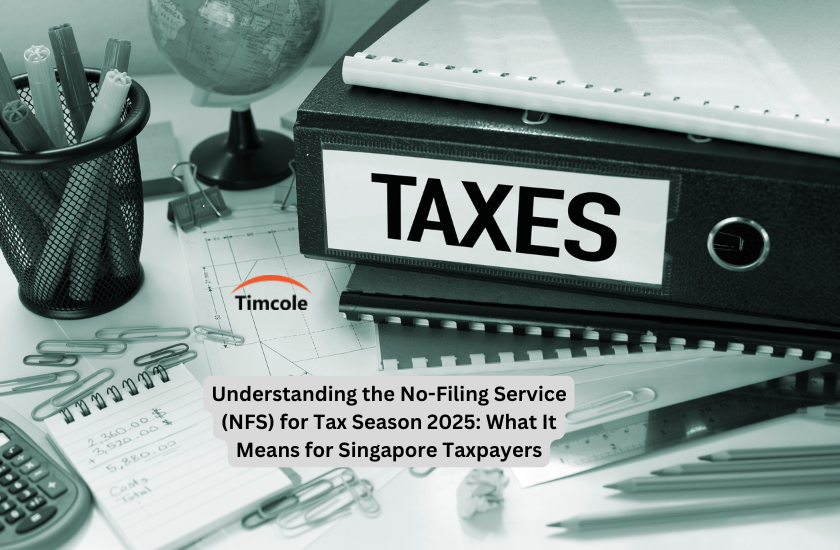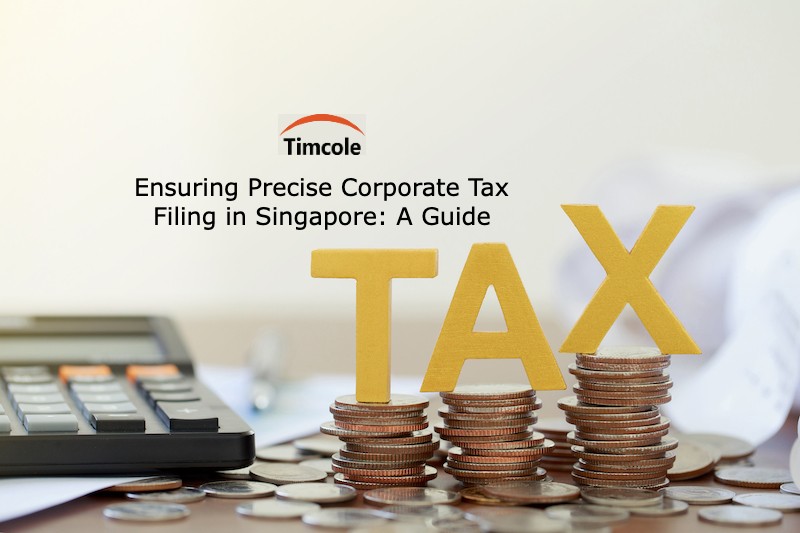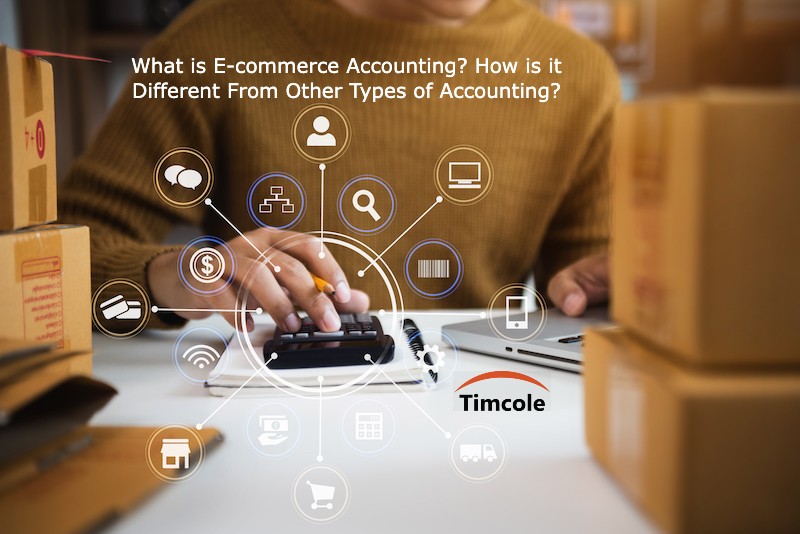Singapore Taxation
Bookkeeping Best Practices for 2025: Essential Tips for Singapore SMEs
If 2024 was about “going digital,” 2025 is about getting decision-grade data from your books—fast. With tighter cash cycles, rising costs, and ongoing digitalisation across IRAS/ACRA touchpoints, SMEs that treat bookkeeping as a strategic function (not just compliance) will outpace those that don’t. Clean books unlock: Cash flow clarity (know what’s due, when, and what’s…
Are Dividends Taxable in Singapore? A Guide for Local and Foreign Investors
Singapore is widely regarded as one of the world’s most attractive financial and business hubs, thanks to its robust economy, pro-business policies, and competitive tax framework. Many entrepreneurs and corporations are drawn here not only for its investment opportunities but also for its seamless company incorporation in Singapore, which offers a gateway to the region’s…
Understanding the No-Filing Service (NFS) for Tax Season 2025: What It Means for Singapore Taxpayers
Tax season can be a stressful time for many, but for eligible taxpayers in Singapore, the No-Filing Service (NFS) helps simplify the process significantly. Over 1.9 million individual taxpayers are eligible for NFS in the Year of Assessment (YA) 2025, with close to 500,000 benefitting from the Direct Notice of Assessment (D-NOA) initiative. The D-NOA…
Maximising Returns: The Role of Tax Consultants in Corporate Tax Filing in Singapore
In the dynamic landscape of corporate taxation in Singapore, staying ahead of regulatory changes and maximising returns can be a daunting task. This is where tax consultants step in, playing a pivotal role in navigating the complexities of tax laws and ensuring compliance while optimising financial outcomes for businesses. In this blog post, we explore…
Unraveling the Transfer Pricing Workflow in Singapore
Transfer pricing, often regarded as the backbone of international transactions within multinational corporations, plays a critical role in ensuring fair taxation and profit allocation across different jurisdictions. In Singapore, a global business hub known for its favourable tax policies and robust regulatory framework, understanding the workflow of transfer pricing is imperative for businesses aiming to…
Ensuring Precise Corporate Tax Filing in Singapore: A Guide
Singapore has established itself as a global business hub, attracting companies from around the world due to its strategic location, business-friendly policies, and robust infrastructure. However, with these advantages come responsibilities, and one crucial obligation for businesses operating in Singapore is the accurate and timely filing of corporate taxes. In this guide, we will delve…
What Is The Supplementary Retirement Scheme (SRS)?
The Supplementary Retirement Scheme (SRS) is a voluntary savings program that was introduced in Singapore in 2001. The scheme aims to encourage individuals to save for their retirement by providing tax benefits on contributions made to an SRS account. The SRS account complements the Central Provident Fund (CPF) system, which is the primary retirement savings…
Your Guide To Raising Funds For Your Singapore Business Through Private Equity
Private equity is a type of investment that involves pooling money from private investors looking to buy stakes in businesses. Essentially, private equity is an investment in which investors will fund private companies that they believe will be able to compete in the market, in return for which they will be rewarded with capital gains…
What is E-commerce Accounting? How is it Different From Other Types of Accounting?
If you are planning to set up an e-commerce business in Singapore, you also need to have a good understanding and knowledge of e-commerce accounting. It’s essential to run your business smoothly and remain operational. Also, you will be able to evaluate the financial status of your business accurately if you understand e-commerce accounting. You…
How is Accounting and Taxation Done for an E-commerce Company in Singapore?
E-commerce is surging, and so is the requirement for accounting and taxation for such companies. Dealing with e-commerce accounting involves bookkeeping, invoice recording, and of course, taxes. The most challenging part of accounting is doing the taxes for your e-commerce business. Some of the transactions are multi-jurisdictional, so you must have an understanding of the…











